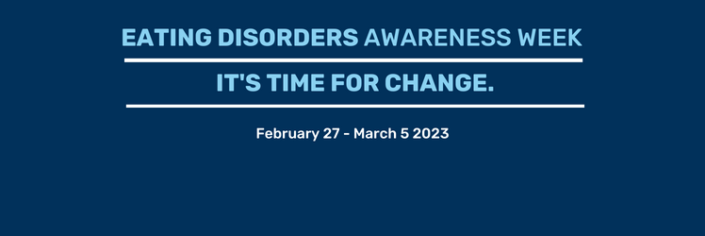When people hear that I have an eating disorder, they usually don’t know what to say. It’s awkward on both ends, I’m sure. I sometimes feel the need to apologize for making the other person uncomfortable. It doesn’t have to feel that way. When ED patients share this detail of their life with another person, they usually aren’t expecting sympathy or compliments, so you do not have to feel obliged to give them. However, if you want to comment on the person’s body shape, here is some advice:
1. Don’t.
There really is no right or safe way to do it. Anything you say can and will be misinterpreted. ED patients don’t think like other people. Our brains are wired differently. Our thought patterns can be extremely abstract. Though you may mean well, there is no guarantee that your words will not be translated into something insulting or triggering. It’s not your fault, it’s not the subject’s fault; it’s just the way things are.
I’m going to list some examples of how well-intentioned “compliments” can be negatively skewed by the eating disordered mind:
“But you’re already so skinny!”
This one can vary based on where the patient is in recovery. If they are just beginning to or have not yet began to recover, skinny may be the goal. Hearing that they are “skinny” may simply reinforce their ED actions or discourage them to recover, as recovery usually necessitates weight gain. If the subject has reached a healthy weight, they may associate the word skinny with illness and feel like their efforts to recover are in vain.
“You don’t look like you have an eating disorder.”
First of all, what does this even mean? Is there a certain way that EDs are supposed to look? There is no one-size-fits-all image for EDs. They come in all shapes and sizes. Not everyone with an ED is thin. Many people with EDs go untreated because of this dangerous stereotype and the symptoms of an ED aren’t always obvious. This can also lead to denial. And as we all know, acceptance is a prerequisite for recovery.
“I wish I looked like you.”
Oh, really? Do you also wish you had a monster inside your head screaming at you to deny yourself the very sustenance you need to keep your heart beating? Do you wish you woke up every day only waiting for it to be over? Do you wish you isolated yourself from all social contact so you can battle your own toxic thoughts in solitude? Do you wish there was constant noise in your head causing you such emotional distress that you choose to cope with it by slowly destroying yourself from the inside out? Are you willing to go through this perpetual torment and never be satisfied with yourself? Didn’t think so.
“You look so healthy!”
Believe it or not, even this one can be taken the wrong way. When I was underweight, being “healthy” meant I would have to gain weight—something I feared more than death. Now, hearing this one isn’t so bad. But for some who were extremely thin in their illness, being told they look healthy may be a simple reminder that they have put on weight. Yes, weight gain in those situations is most certainly a good thing, but to the ED patient it comes with a lot of grief and is something that many of us like to put out of our minds.
These are just a few examples of how an innocent compliment said with a smile can be mistaken. If it seems irrational, that’s because it is. Eating disorders are mental illnesses—they attack the mind. As convoluted as it may seem, these are the kinds of thoughts that I have struggled with. I was most sensitive when I first started recovering, but now I can take most of these with stride as I have grown stronger (in body and mind). So, how DO you compliment someone with an ED?
Take the focus off of their body. Some of the most thoughtful, kindest, unforgettable compliments I have ever received had nothing to do with my body image. Compliment them on their refreshing personality, or their witty sense of humor, or their exceptional intelligence, or the sparkle in their eyes. This is a good idea for complimenting anyone—ED or not. Compliments based on looks are easy and superficial. When you notice someone’s intrinsic value, that’s special.
Of course, a simple “you are beautiful” is always nice, too.
Author’s note: In my writing, you will notice I state that I “have” an eating disorder, implying present tense. I really don’t like to phrase it this way because that can mislead people to believe that I am actively restricting, which I am not. Be that as it may, I don’t believe I can safely say that I “had” an eating disorder (past tense) because I still struggle to fight it every day. I do have an eating disorder—to say otherwise would be denial. However, I am in strong recovery and I am not currently engaged in ED behavior. It’s messy and confusing, but it’s working for me.
Annie Zomaya is public relations major at Eastern Kentucky University. She plans on working in the nonprofit sector, possibly mental health, so she can continue to use her recovery journey to inspire and help others.






